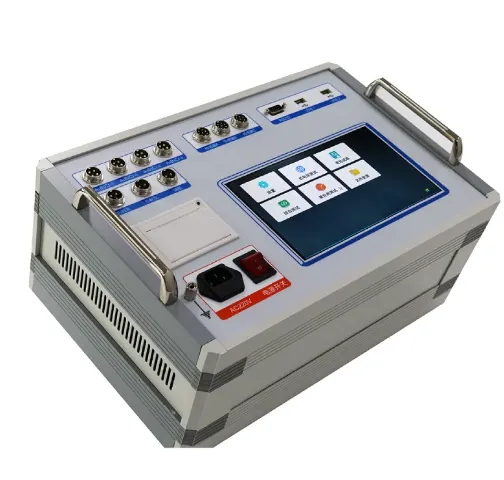TEL:
+86-0312-3189593
 English
English

Telephone:0312-3189593

Email:sales@oil-tester.com

-
 Afrikaans
Afrikaans -
 Albanian
Albanian -
 Amharic
Amharic -
 Arabic
Arabic -
 Armenian
Armenian -
 Azerbaijani
Azerbaijani -
 Basque
Basque -
 Belarusian
Belarusian -
 Bengali
Bengali -
 Bosnian
Bosnian -
 Bulgarian
Bulgarian -
 Catalan
Catalan -
 Cebuano
Cebuano -
 China
China -
 China (Taiwan)
China (Taiwan) -
 Corsican
Corsican -
 Croatian
Croatian -
 Czech
Czech -
 Danish
Danish -
 Dutch
Dutch -
 English
English -
 Esperanto
Esperanto -
 Estonian
Estonian -
 Finnish
Finnish -
 French
French -
 Frisian
Frisian -
 Galician
Galician -
 Georgian
Georgian -
 German
German -
 Greek
Greek -
 Gujarati
Gujarati -
 Haitian Creole
Haitian Creole -
 hausa
hausa -
 hawaiian
hawaiian -
 Hebrew
Hebrew -
 Hindi
Hindi -
 Miao
Miao -
 Hungarian
Hungarian -
 Icelandic
Icelandic -
 igbo
igbo -
 Indonesian
Indonesian -
 irish
irish -
 Italian
Italian -
 Japanese
Japanese -
 Javanese
Javanese -
 Kannada
Kannada -
 kazakh
kazakh -
 Khmer
Khmer -
 Rwandese
Rwandese -
 Korean
Korean -
 Kurdish
Kurdish -
 Kyrgyz
Kyrgyz -
 Lao
Lao -
 Latin
Latin -
 Latvian
Latvian -
 Lithuanian
Lithuanian -
 Luxembourgish
Luxembourgish -
 Macedonian
Macedonian -
 Malgashi
Malgashi -
 Malay
Malay -
 Malayalam
Malayalam -
 Maltese
Maltese -
 Maori
Maori -
 Marathi
Marathi -
 Mongolian
Mongolian -
 Myanmar
Myanmar -
 Nepali
Nepali -
 Norwegian
Norwegian -
 Norwegian
Norwegian -
 Occitan
Occitan -
 Pashto
Pashto -
 Persian
Persian -
 Polish
Polish -
 Portuguese
Portuguese -
 Punjabi
Punjabi -
 Romanian
Romanian -
 Russian
Russian -
 Samoan
Samoan -
 Scottish Gaelic
Scottish Gaelic -
 Serbian
Serbian -
 Sesotho
Sesotho -
 Shona
Shona -
 Sindhi
Sindhi -
 Sinhala
Sinhala -
 Slovak
Slovak -
 Slovenian
Slovenian -
 Somali
Somali -
 Spanish
Spanish -
 Sundanese
Sundanese -
 Swahili
Swahili -
 Swedish
Swedish -
 Tagalog
Tagalog -
 Tajik
Tajik -
 Tamil
Tamil -
 Tatar
Tatar -
 Telugu
Telugu -
 Thai
Thai -
 Turkish
Turkish -
 Turkmen
Turkmen -
 Ukrainian
Ukrainian -
 Urdu
Urdu -
 Uighur
Uighur -
 Uzbek
Uzbek -
 Vietnamese
Vietnamese -
 Welsh
Welsh -
 Bantu
Bantu -
 Yiddish
Yiddish -
 Yoruba
Yoruba -
 Zulu
Zulu
феб . 14, 2025 01:18
Back to list
tests before commissioning of transformer induction motor and alternator
Ensuring the seamless operation of transformers, induction motors, and alternators begins with rigorous testing protocols prior to their commissioning. Such protocols not only enhance the reliability of these machines but also extend their life span, proving crucial in industrial applications where downtime can be costly. The focus of these tests underscores a meticulous process crafted by experts in electrical engineering, prioritizing safety, performance, and efficiency from the very outset.
Employing these rigorous test protocols before commissioning reinforces an organization's commitment to quality and operational excellence. This assurance extends beyond just meeting compliance and regulatory requirements, delving into the realm of optimizing performance, maximizing efficiency, and ensuring safety. It signals a proactive approach to maintenance that can significantly mitigate the risk of operational failures and unscheduled outages. Harnessing extensive field experience and engineering expertise, each step within these testing procedures embodies the synthesis of theoretical knowledge and practical application. Experienced engineers leverage both cutting-edge diagnostic tools and time-tested methods to derive insights that inform strategic decisions in equipment deployment. This level of expertise instills confidence in stakeholders, reassuring them of the systems' integrity and readiness for service. Through the lens of expertise and authority, deploying rigorous testing regimens underscores a business's commitment to best practices and quality assurance. It reflects a profound understanding of electrical systems' complexities, affirming the credibility of the professionals involved. By integrating these testing standards into regular maintenance schedules post-commissioning, organizations can further ensure the reliability and longevity of their critical infrastructure. In conclusion, the meticulous pre-commissioning tests on transformers, induction motors, and alternators are the bedrock of a resilient electrical infrastructure. Such diligence not only enhances operational efficiency and safety but also builds trust in the systems powering industries globally. By upholding these standards, companies not only protect their investments but also position themselves as leaders in a competitive landscape, where reliability and expertise serve as pivotal differentiators.


Employing these rigorous test protocols before commissioning reinforces an organization's commitment to quality and operational excellence. This assurance extends beyond just meeting compliance and regulatory requirements, delving into the realm of optimizing performance, maximizing efficiency, and ensuring safety. It signals a proactive approach to maintenance that can significantly mitigate the risk of operational failures and unscheduled outages. Harnessing extensive field experience and engineering expertise, each step within these testing procedures embodies the synthesis of theoretical knowledge and practical application. Experienced engineers leverage both cutting-edge diagnostic tools and time-tested methods to derive insights that inform strategic decisions in equipment deployment. This level of expertise instills confidence in stakeholders, reassuring them of the systems' integrity and readiness for service. Through the lens of expertise and authority, deploying rigorous testing regimens underscores a business's commitment to best practices and quality assurance. It reflects a profound understanding of electrical systems' complexities, affirming the credibility of the professionals involved. By integrating these testing standards into regular maintenance schedules post-commissioning, organizations can further ensure the reliability and longevity of their critical infrastructure. In conclusion, the meticulous pre-commissioning tests on transformers, induction motors, and alternators are the bedrock of a resilient electrical infrastructure. Such diligence not only enhances operational efficiency and safety but also builds trust in the systems powering industries globally. By upholding these standards, companies not only protect their investments but also position themselves as leaders in a competitive landscape, where reliability and expertise serve as pivotal differentiators.
Previous:
Latest news
-
Testing Equipment Industry Sees Major Advancements in 2025: Smart & Precision Technologies Lead the WayNewsJun.06,2025
-
Applications of Direct Current Generators in Renewable Energy SystemsNewsJun.05,2025
-
Hipot Tester Calibration and Accuracy GuidelinesNewsJun.05,2025
-
Digital Circuit Breaker Analyzer Features and BenefitsNewsJun.05,2025
-
Benefits of Real-Time Power Quality Monitoring Devices for Industrial EfficiencyNewsJun.05,2025
-
Earth Fault Loop Testing in High-Rise Building Electrical SystemsNewsJun.05,2025



